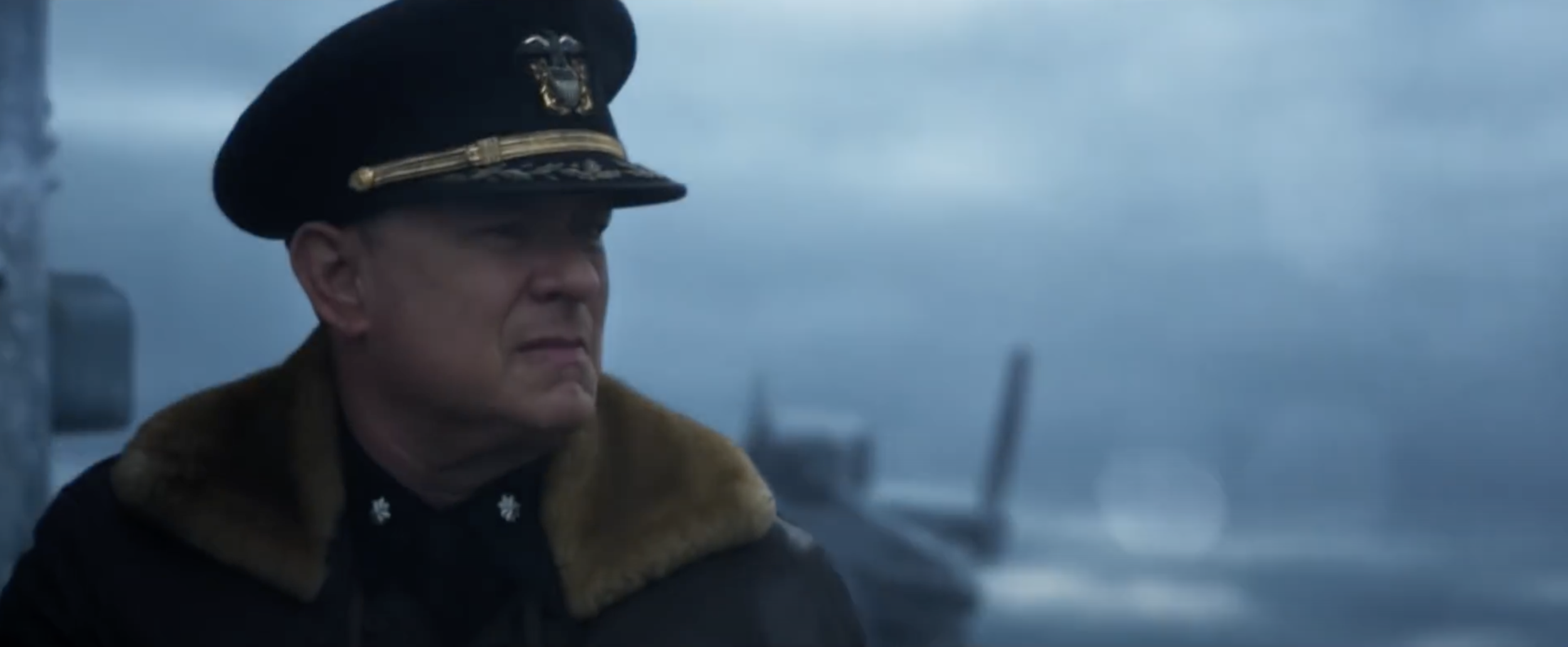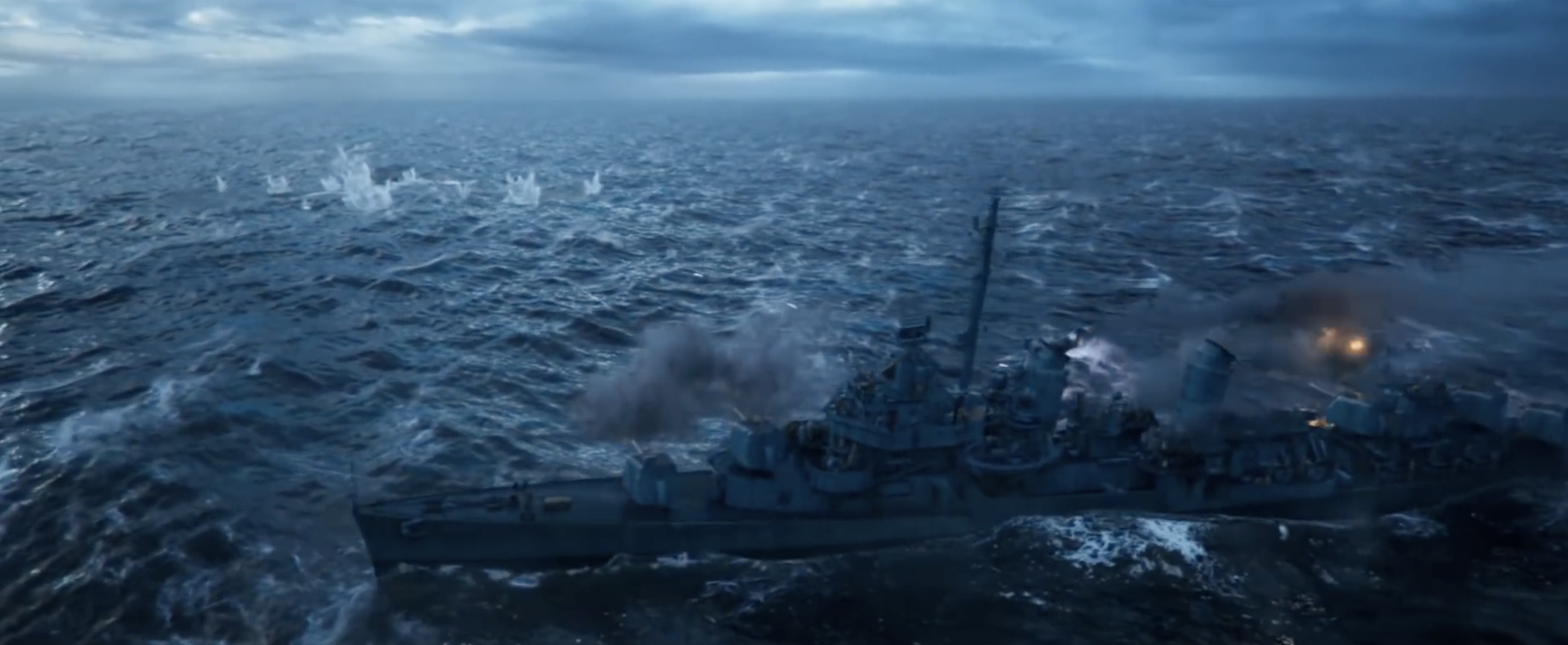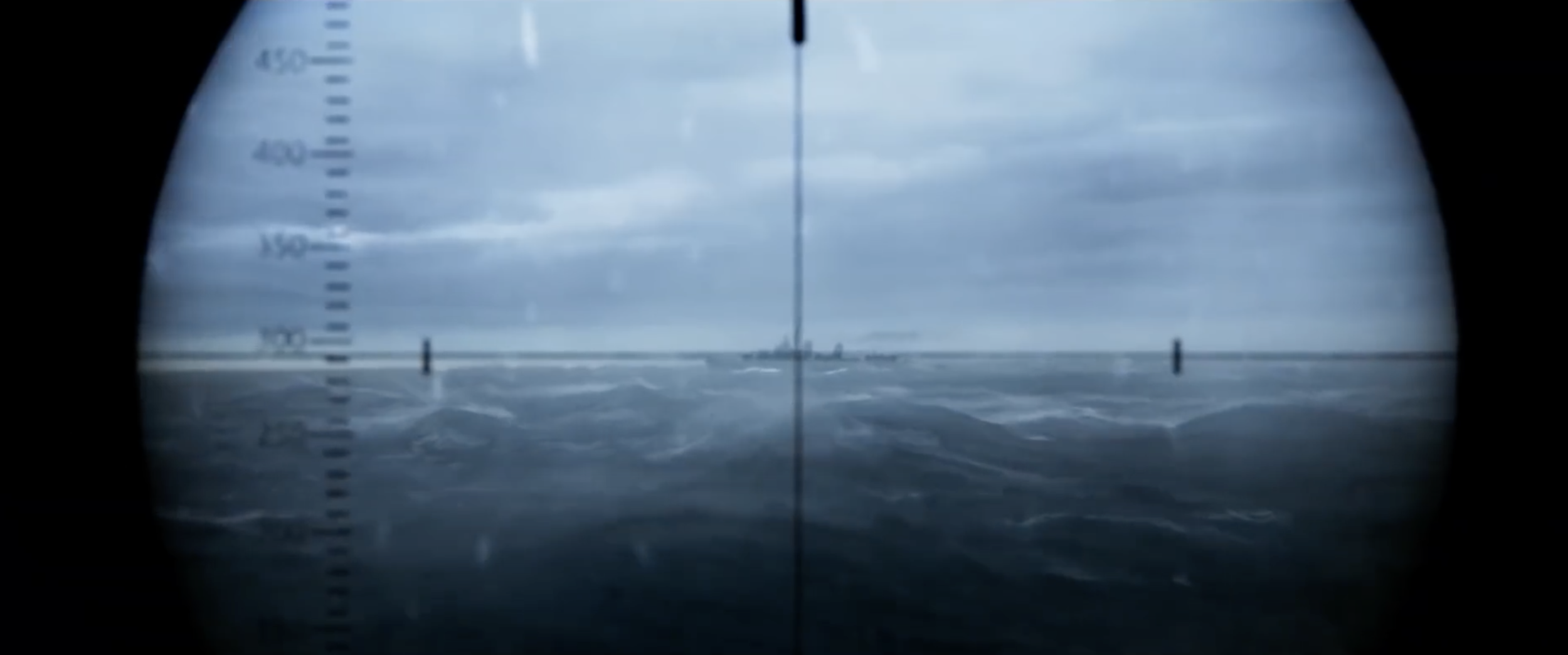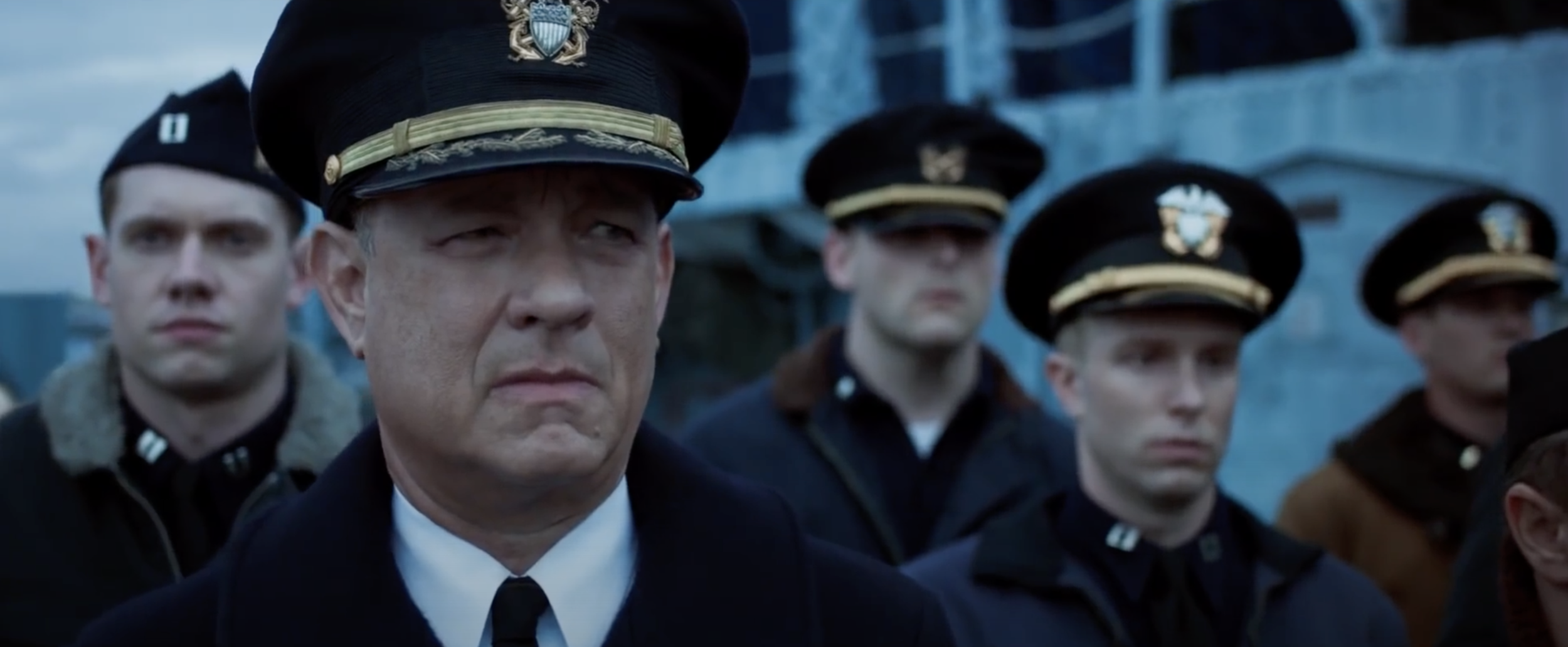Review: The Good Shepherd/Greyhound
In July, I read an article about the Tom Hanks movie Greyhound that mentioned that the movie is based on a 1955 novel by C.S. Forester called The Good Shepherd. In high school, I used to read C.S. Forester’s Hornblower novels about the British navy during the Napoleonic wars, and when I saw the Kindle version of The Good Shepherd on sale for $0.99 [currently $2.99], I decided to give it a chance. I ended up reading the whole thing in less than 48 hours—the perfect summer reading novel. Below are my brief thoughts on both the novel and the movie.
Book Review: The Good Shepherd
From the publisher’s description:
The mission of Commander George Krause of the United States Navy is to protect a convoy of thirty-seven merchant ships making their way across the icy North Atlantic from America to England. There, they will deliver desperately needed supplies, but only if they can make it through the wolfpack of German submarines that awaits and outnumbers them in the perilous seas. For forty eight hours, Krause will play a desperate cat and mouse game against the submarines, combating exhaustion, hunger, and thirst to protect fifty million dollars' worth of cargo and the lives of three thousand men. Acclaimed as one of the best novels of the year upon publication in 1955, The Good Shepherd is a riveting classic of WWII and naval warfare from one of the 20th century's masters of sea stories.
The novel is essentially a long interior monologue of the thoughts of Captain Krause—the author gets you to feel what it must have been like to command a warship in the frozen North Atlantic: the crushing responsibility, the loneliness of command, the physical exertions of fighting a (largely) unseen enemy.
Captain Krause was raised as the only child of a strictly devout but loving pastor father and a mother who died when he was very young, and The Good Shepherd is one of those few popular books that accurately captures what it’s like to truly believe that the Lord is your shepherd and constantly at your right hand. The captain’s interior monologue is peppered with (unspecified) scriptural quotations, and his piety is presented as straightforward and honest.
I thought the ending was too abrupt and unsatisfying, but otherwise I really enjoyed the book.
The Good Shepherd. Recommended. ★★★1/2
Note on my Rating System for Books
I use a 5 star system in my ratings to signify the following:
★★★★★ life-changing and unforgettable
★★★★ excellent
★★★ worth reading
★★ read other things first
★ not recommended
Movie Review: Greyhound
If I hadn’t read the book first, I would have liked the movie Greyhound more. Even though the title was changed away from its double-meaning and scriptural allusion, the movie actually preserves the novel’s positive portrayal of the captain’s faith—something very unusual in modern movies, as I don’t need to tell you.
Tom Hanks is characteristically great, and the action scenes are believable, but the movie isn’t able to give us his interior thoughts in the same way as the book, nor get us to feel the psychological terror of being hunted by a Nazi wolfpack, a thousand miles from land and a thousand miles above the frozen Atlantic seafloor.
Be that as it may, I still recommend the movie, particularly if it causes you to turn off cable news!
Movie: Greyhound. Recommended.
Ad Astra
I rarely find myself in agreement with the message of a Hollywood movie, but I’m all in on this one.
I played hooky today and saw the new movie Ad Astra in an empty, midday theater, which was appropriate, because it is a lonely, expansive film, which asks the perennial human question: What are you looking for? We are all looking for something, and usually that something is something out of reach, far away, ad astra.
The movie is set in “the near future” when humanity has developed the technology for deep space travel. (Not all the physics holds up to even my pedestrian knowledge, but it looks entirely believable all the way through.) Major Roy McBride (played by Brad Pitt) is sent on a top secret mission to find his father, lost near Neptune decades before. Since being left by his father as a boy, Roy has always been looking for something, and his search takes him literally to the stars.
So many of us live lives of quiet dissatisfaction, always looking for the next thing, all the while encouraged in our restlessness by multinational corporations who have learned how to monetize our searching.
If you had this car
If you had this woman
If you had this body
If you had this house
Then you would be satisfied.
But, it’s not true, is it? And so we keep looking ad astra and never think there might be something to the advice of Jesus to “consider the lilies.”
It is a beautiful prayer: “God, thou hast put salt on our lips that we might thirst for thee.” Our searching is, of course, ultimately a search for God. But there is a second order of restlessness that also keeps us from delighting in the simple gifts of God: the people at hand, the water we drink, the daily bread God provides. If we can’t take delight and satisfaction in these things, then no matter where we go, there we’ll be.
Like you, I’ve read the stories about Brad Pitt’s family chaos over the past few years: how he left his first wife, the movie star Jennifer Aniston, for the movie star Angelina Jolie, how they had a total of 6 adopted and natural children together, how his marriage fell apart, how he was charged with and then cleared of child abuse. I wonder, has all of that chaos caused him to reflect on what really matters? He plays his role with a wisdom that suggests he’s learned a lot of this the hard way, and is warning us of the danger of thinking that contentment lies ad astra, elsewhere, and not where we already are.
What does it profit a man to gain the whole world and lose his own soul?
What good is it to go to the stars if you haven’t learned to delight in the gifts of God already at hand?
Ad Astra (2019): recommended.
"Annihilation"--Book Review
I finished the Jeff VanderMeer science-fiction/horror novel Annihilation last month; the movie opens this week. [No spoilers below, by the way.] I?d seen the trailer for the movie online and was intrigued by the BASED ON THE ACCLAIMED BEST-SELLING NOVEL? title that flashes across the screen, so I put the novel on hold at the library. (I?d not heard of it previously.) My verdict, now that I‘ve read it? If the movie Annihilation?is anything like the novel?Annihilation,?it will be STRANGE.The novel begins in medias res as a team of four women?each unidentified, except for her title: psychologist, anthropologist, surveyor, and our narrator the team biologist?begin to explore a wild coastal wilderness known as Area X. Area X is beyond a mysterious border that requires the women to have been hypnotized to pass through it; the team‘s mission is to research the area and report back to some mysterious agency called The Southern Reach. Almost immediately, the team stumbles across a mysterious underground tower,? the top of which begins at the earth‘s surface. The entrance leads to a spiral staircase that continues underground. The team explores the tower, and below ground, in the dark, they discover a long stream of words running along the wall. The string begins
Where lies the strangling fruit that came from the hand of the sinner I shall bring forth the seeds of the dead to share with the worms that?.etc.
The biologist comes close to the words and discovers that they are in fact a living organism or organisms, perhaps some type of fungus. They return to the surface, and strange things begin to happen.Or, at least, strange things are implied and occasionally shown. The strangeness of the novel slowly increases the more you read, because the characters in the midst of the strangeness don't seem to be overly bothered by it, which I take is the effect the author was going for: the very fact that everyone in Area X takes its increasing weirdness in stride is a clue to us that the entire situation is uncanny. We wonder, What‘s wrong with these women? Why is our narrator so matter-of-fact in describing a situation that is so utterly bizarre?The novel in fact is so bizarre that I finished it and had to ask myself, What was this about?Now, you should know that almost none of the scenes in the movie trailer is actually in the novel, but if you're planning on seeing it, expect it to be?weird. And let me know if you figure it out.










